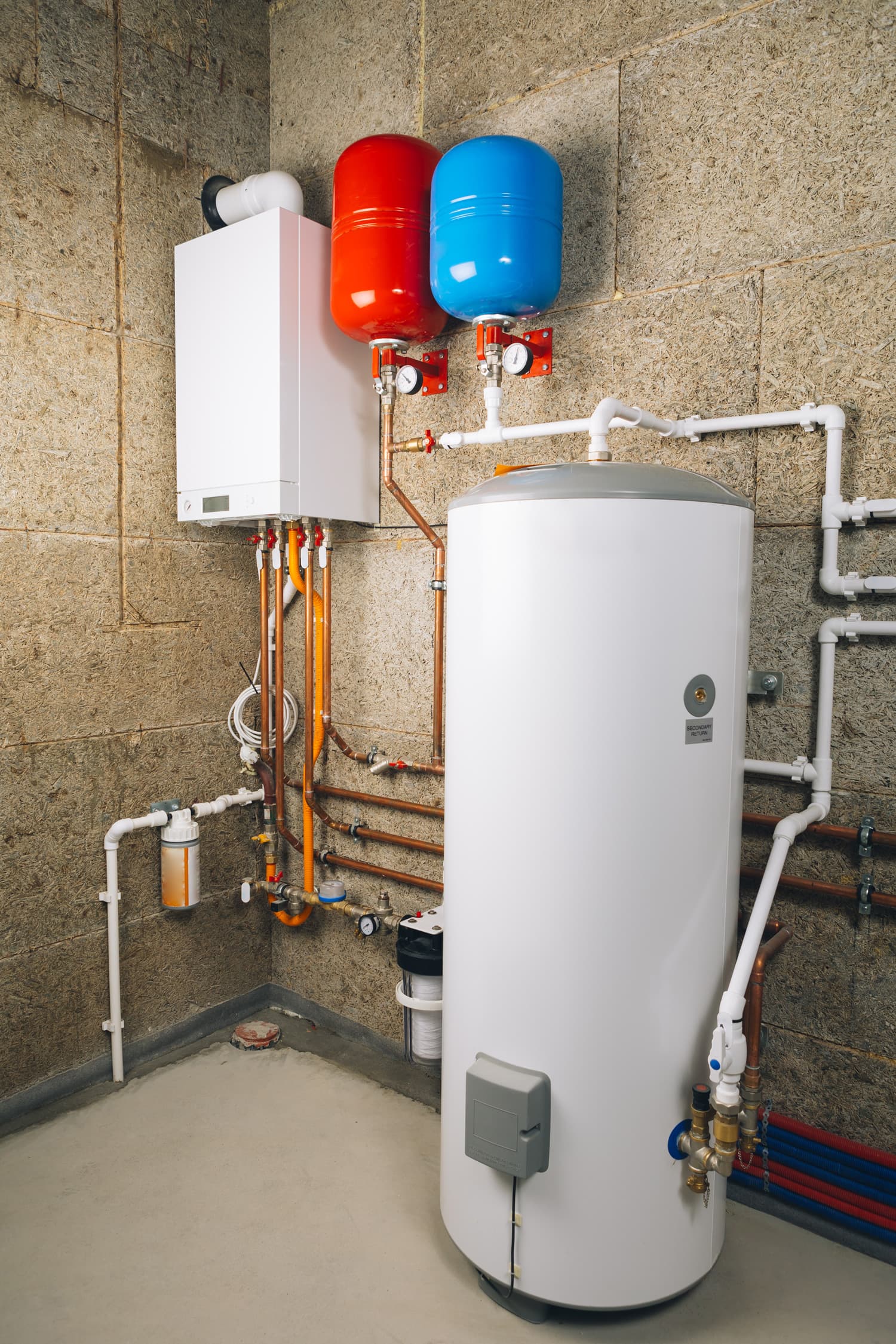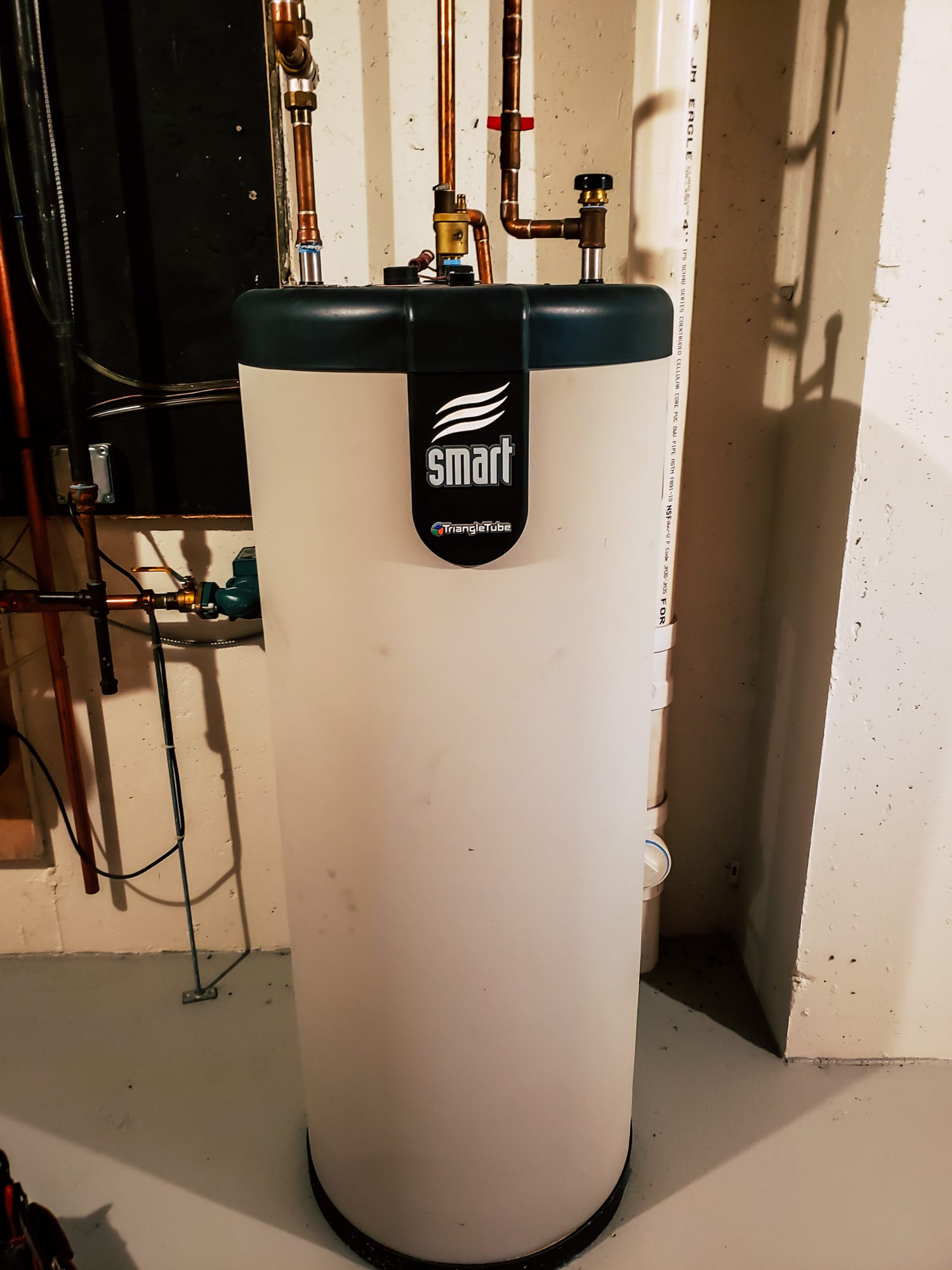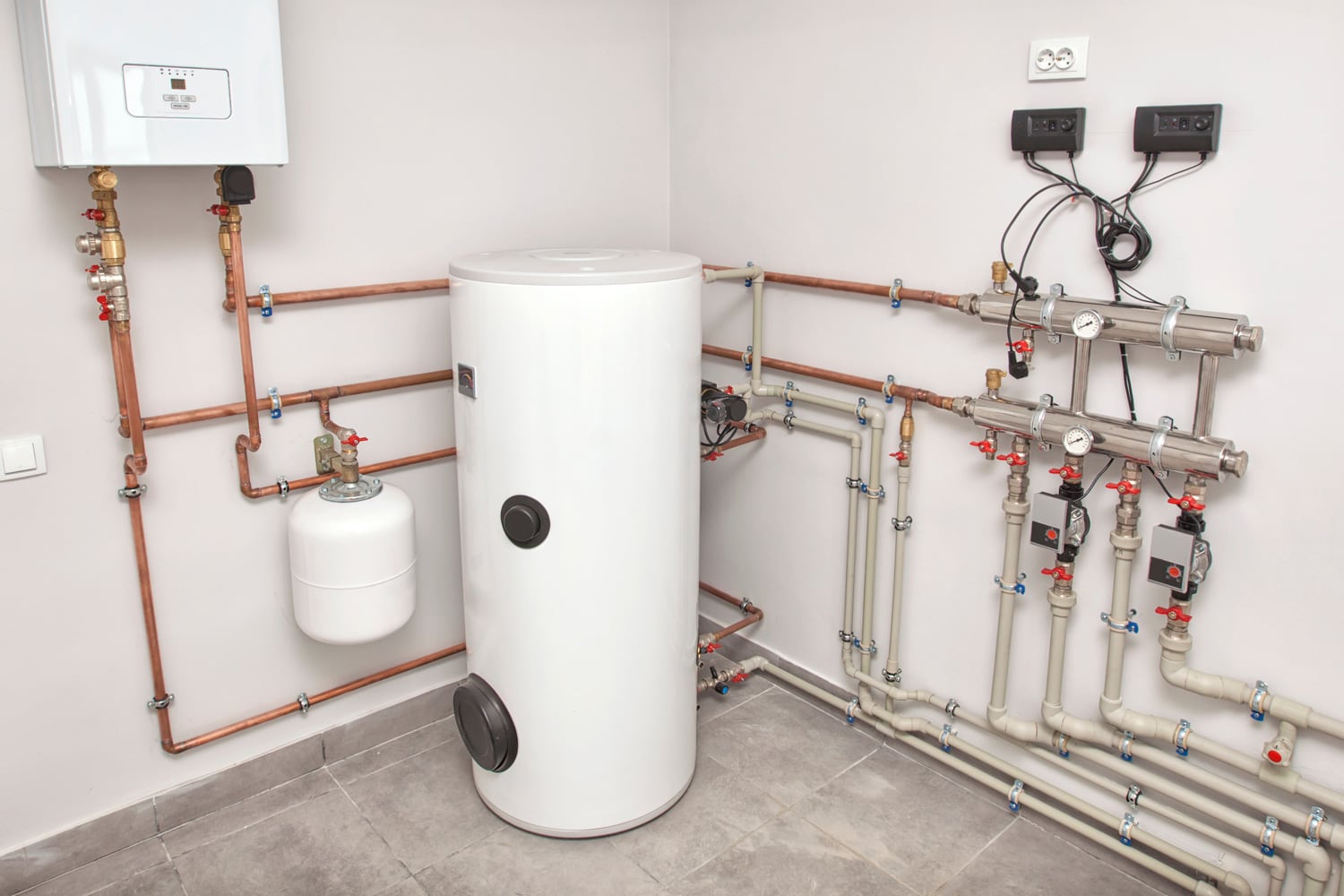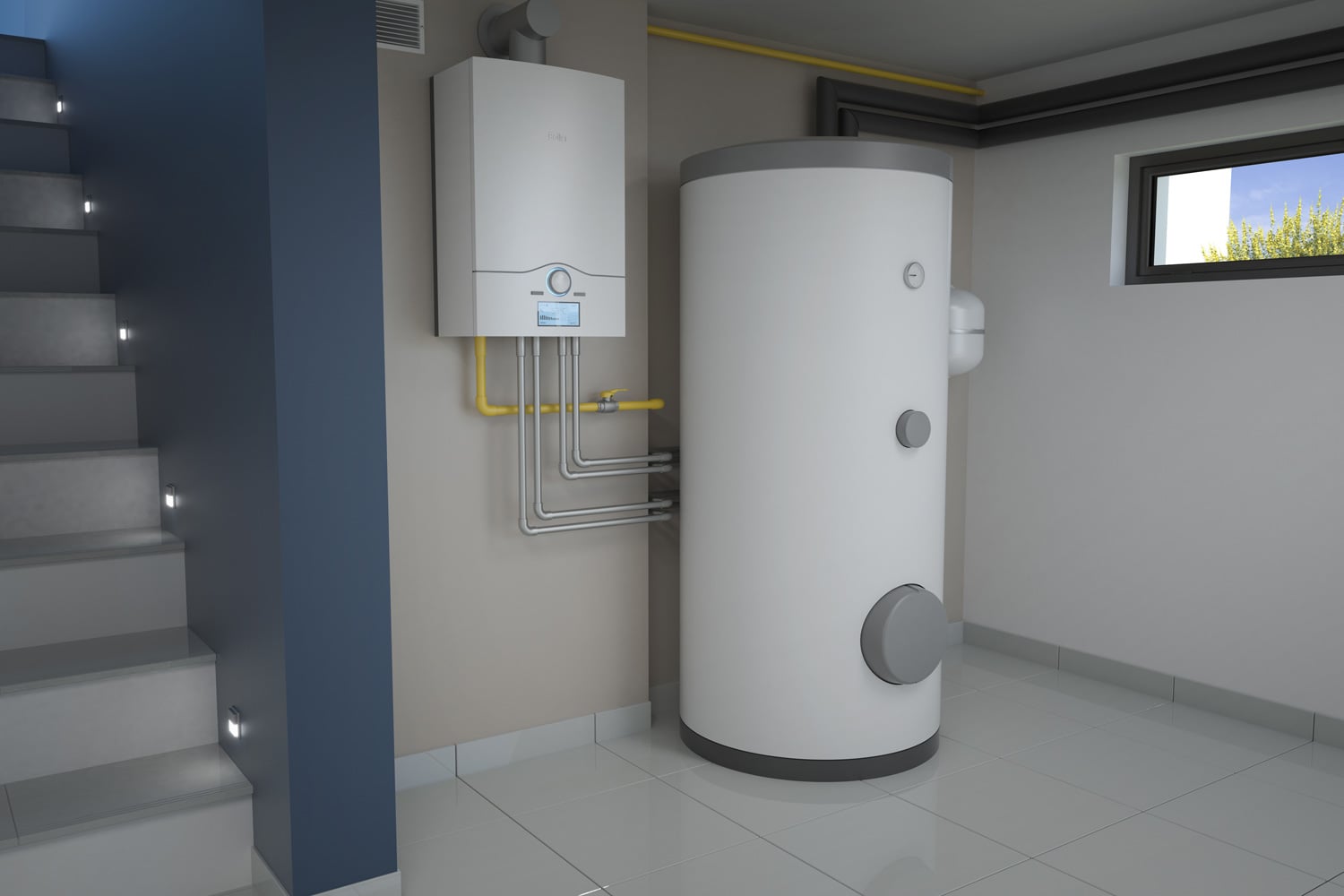If you run out of hot water in the middle of a supposedly warm, refreshing shower, it's frustrating! But how long might you wait for the gas-heated water to come back. Don't worry! We researched this to get the best answer for you.
While a 40-gallon tank takes 30–40 minutes on average, bigger tanks take longer for gas hot water to return. This heating time depends on the size of your tank, the BTU Input, and the measure of temperature rise between the unconditioned water and the desired temperature setting.
We'll elaborate on the topic below and also share some tips on how to not run out of hot water. Continue reading to forever say goodbye to the struggle of facing a hot water shortage.

How Long Does It Take For Gas Hot Water To Come Back?

One determining factor is the tank size. While it would only take you around 40 minutes at most to heat up a 40-gallon tank, heating a bigger tank entails waiting a bit longer.
A larger tank holds more water and needs more time to heat. So if you heat up an 80-gallon tank, it would take about 60 to 70 minutes.
Recovery Rate Of A Gas Water Heater
How long the entire process of heating water takes is the water heater's recovery rate. If you want to find out how long it takes for hot water to come back, you need to get the recovery rate of your water heater.
Many factors affect the recovery rate of a gas heater. Even if the average time ranges from 30 to 40 minutes per 40 gallons of water, it doesn't always apply to the same volume.
You can calculate each gas water heater's recovery rate using the formula below. However, there's no way to calculate the exact rate unless you measure the actual temperature of the incoming water, which is quite impossible to do with the water heater and plumbing system's intact setup.
To calculate the water heater recovery rate, you need to follow this formula:
GPH (gallons per hour) = BTU divided by [11 x temperature rise (in Fahrenheit)]
Sample calculation:
- Gas heater BTU: 40,000
- Incoming water temperature: 65 degrees Fahrenheit
- Thermostat setting: 125 degrees Fahrenheit
40,000 BTUs divided by [11 x 60 degrees Fahrenheit temperature rise] = 60 gallons per hour
Even if you have an actual temperature reading in hand, remember that fluctuations in water temperature could happen anytime. This means that the temperature reading is only reliable for a certain period.
Thus, you will get an estimate rather than an exact answer most of the time.
BTU Input and Efficiency

If it is pretty challenging to determine the exact recovery rate, then perhaps you can use the BTU rating of the gas heater. BTU (British Thermal Unit) is the measurement used to calculate the amount of heat needed to raise a pound of water by 1 degree Fahrenheit.
Here is the formula:
BTU = Water Flow Rate in GPM (gallons per minute) x (difference between incoming water and thermostat setting) x 500.4
Sample calculation:
- Flow rate in GPM: 1 gallon
- Incoming water temp: 65 degrees Fahrenheit
- Thermostat setting: 125 degrees
1 GPM x (60 degrees Fahrenheit) x 500.4 = 30,024 BTU
BTU is a requirement to measure the recovery rate, but you may simplify things using the general rule.
A higher BTU input and efficiency translates to faster recovery. The BTU rating is indicated on the water heater label listed as Input in BTU/hr.
Sediment Buildup Delays Hot Water Recovery
Calculating the recovery rate does not take into account sediment buildup, even though it hinders the water heater's efficiency.
Water contains naturally-occurring minerals such as calcium and magnesium. When water gets heated up, these minerals harden and sink to the bottom of the tank. Over time, the sediments build up.
You may be using the right tank size, and your water heater capacity is superb, but it would still take your heater longer to do its job when the tank is filled with sediments down below. This sediment buildup acts like a barrier that delays the transfer of heat.
Why Does Hot Water Run Out Fast?

Here are the most common reasons why you run out of hot water often:
Incorrect Tank Capacity Vs. Household Size
When determining the ideal size for a water tank, you should consider the number of household members.
The US Department of Energy recommends a 50-gallon hot water tank ideal for a family with three members. For more insight, check out this post: "What Are The Dimensions Of A 50-Gallon Water Heater?"
An 80-gallon tank is suitable for four people, and a larger tank is required for households with six members.
Too Much Hot Water Consumption
Consider the number of plumbing fixtures in the bathroom, kitchen, and other areas of your house that get water from your hot water tank. More fixtures relying on the hot water line means more water consumption.
The increase in activities that use hot water also causes your hot water supply to drain faster. If several people use hot water simultaneously, this will drain your hot water supply more quickly.
Dirty Water Tank
Your water tank may be holding a lot of sediments at the bottom, making it difficult for the heat source to produce hot water. In return, you run out of hot water fast because the heater takes longer than usual to replace consumed hot water.
Water Heater Is Too Old
A gas water heater can last up to 12 years. It may take longer with proper maintenance. However, a gas water heater may also not reach its expected lifespan for several reasons.
If you are using an old unit that makes gurgling, hissing, and rattling sounds during operation, then it is probably time to replace it with a new one.
Outside Temperature Is Too Low
Whenever the outside temperature drops, the water heater is affected. The cold environment makes it difficult to heat up water and maintain it to the desired temperature.
Very low temperatures can even cause the water heater to freeze. Read more about this here: "What Happens If Your Hot Water Heater Freezes?"
What Can You Do To Never Run Out Of Hot Water?

One way to have a continuous hot water supply is to use a tankless heater. Or, if you have the chance to get another gas heater, a helpful way is to refer to the First Hour Rating.
The First Hour Rating of a heater determines the number of gallons of hot water it can produce in the first hour. You should see this on the label.
Calculate your household's hot water demand (gallons) during peak hours. Then, find a heater with a First Hour Rating closest to the total peak hour demand.
You may use the US Department of Energy's sample worksheet to calculate your peak-hour water demand or list down your household's activities that use water during the peak hours. Then estimate how many gallons of hot water each of these activities consumes. The total is the peak hour water demand.
Don't worry if you are not yet ready to replace your water heater. You can still do the following to never run out of hot water.
Clean the Tank Regularly

Flush your tank at least once a year to get rid of sediments at the bottom. For households that use hard water, flushing may be done more often. Before draining, switch off the heater and the incoming water valve first.
Do a vinegar soak to remove sediment buildup. Soak the bottom of the tank in cider vinegar for at least six hours before draining. You may also use a pressurized cleaner to remove hard sediments.
View this Turbo Tank sediment cleaning tool on Amazon.
Aside from flushing, you can also replace the anode rod. The anode is a device in the tank that attracts minerals and corrosive elements. Over time, this rod corrodes and loses its purpose, causing more sediments to build up in the tank.
Conserve Water
- Limit your use and avoid wasting hot water to make your supply last longer.
- Take shorter showers.
- Close the tap when not in use.
- Do not use hot water to wash clothes and other stuff unless required.
- Do not run the dishwasher until it is full.
Avoid Peak Hours
The demand for hot water is high during peak hours. Identify the times of the day when most people in the house use hot water.
If possible, delay tasks that require you to use hot water just when everybody else is using it. Then, give your heater some time to produce enough hot water before you do a task.
Final Thoughts
Aren't showers refreshing when you never have to worry about running out of hot water and wonder when it'll be back? But now you should know when to expect hot water to come back if you suddenly run out of it. We bet applying our tips above won't let you suffer the same fate repeatedly.

